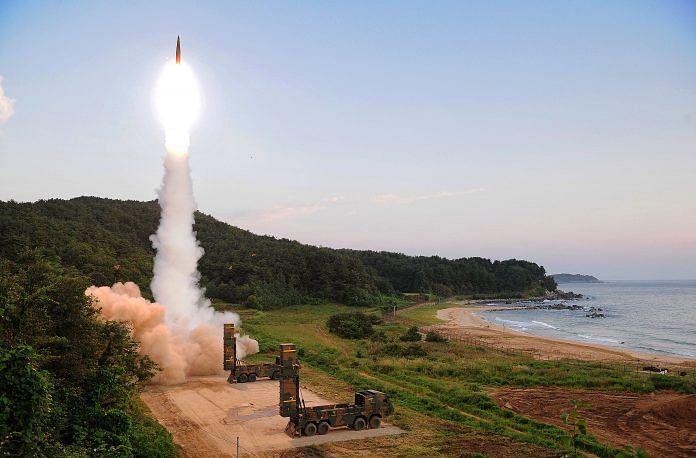U.S. foreign policy experts assess the likelihood and impact of 30 potential crises or conflicts around the world in 2018 in CFR’s annual survey.
The Council on Foreign Relations’ tenth annual Preventive Priorities Survey identified eight top conflict prevention priorities for the United States in the year ahead, highlighting armed confrontations between the United States and North Korea and Iran as serious international concerns.
The survey, conducted by CFR’s Center for Preventive Action (CPA) asked foreign policy experts to rank thirty ongoing or potential conflicts based on their likelihood of occurring or escalating in 2018 and their potential impact on U.S. national interests.

This year, eight conflicts were considered “top tier” risks:
- military conflict involving the United States, North Korea, and its neighbouring countries
- an armed confrontation between Iran and the United States or one of its allies over Iran’s involvement in regional conflicts and support of militant proxy groups, including the Yemeni Houthis and Lebanese Hezbollah
- a highly disruptive cyberattack on U.S. critical infrastructure and networks
- a deliberate or unintended military confrontation between Russia and North Atlantic Treaty Organization members, stemming from assertive Russian behaviour in Eastern Europe
- an armed confrontation over disputed maritime areas in the South China Sea between China and one or more Southeast Asian claimants—Brunei, Malaysia, the Philippines, Taiwan, or Vietnam
- a mass casualty terrorist attack on the U.S. homeland or a treaty ally by either foreign or homegrown terrorist(s)
- intensified violence in Syria as government forces attempt to regain control over territory, with heightened tensions among external parties to the conflict, including the United States, Russia, and Iran
- increased violence and instability in Afghanistan resulting from the Taliban insurgency and potential government collapse
“With the risk of armed conflict growing in the world, the United States needs to make smart choices about where to focus attention and resources to avert potentially costly military engagements. Our annual Preventive Priorities Survey is designed to help U.S. policymakers do just that,” said Paul B. Stares, General John W. Vessey senior fellow for conflict prevention, CPA director, and author of the new book Preventive Engagement: How America Can Avoid War, Stay Strong, and Keep the Peace.
Many of the contingencies identified in previous surveys remain concerns for 2018. Of the thirty identified this year, twenty-two were considered risks last year. Among the eight new contingencies in this year’s survey are the risks of intensified clashes between Israel and Hezbollah, increased violence and political instability in the Sahel region of Africa, and escalating tensions or extremist violence in the Balkans.
Two contingencies were upgraded to the top tier this year: an armed confrontation between Iran and the United States or one of its allies, and an armed confrontation over disputed maritime areas in the South China Sea between China and one or more Southeast Asian claimants.
The 2018 survey downgraded the priority rankings of two contingencies, compared to last year: the intensification of violence between Turkey and various Kurdish armed groups within Turkey and neighbouring countries, and the probability of greater violence in Libya.
CPA’s Global Conflict Tracker plots ongoing conflicts on an interactive map paired with background information, CFR analysis, and news updates.
This article was originally published on cfr.org. Copyright © (2017) by the Council on Foreign Relations. Reprinted with permission.



